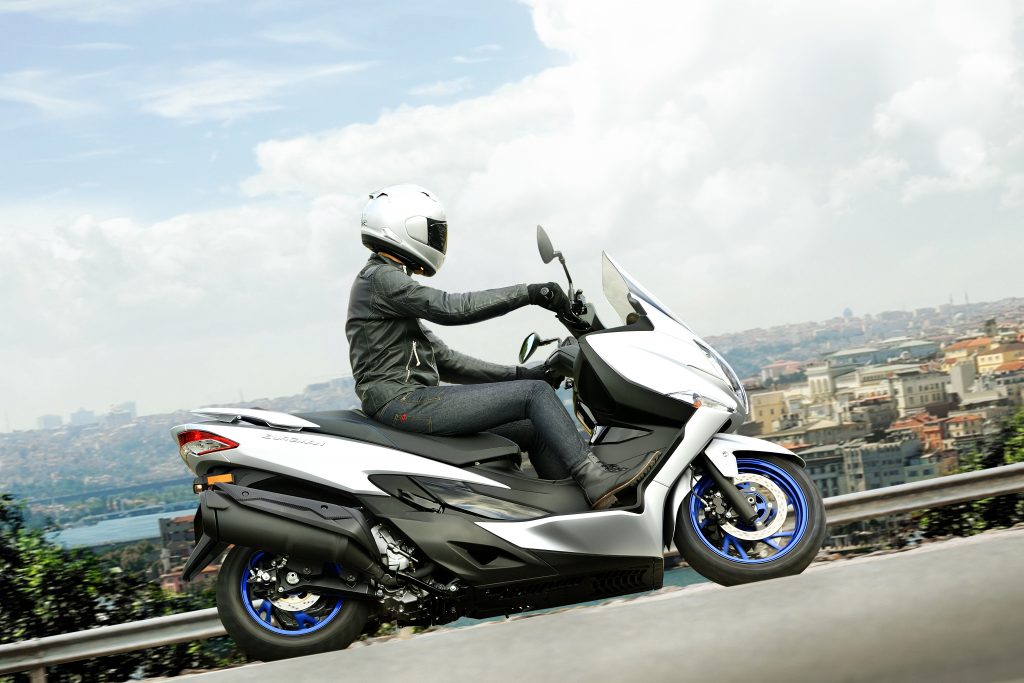What if there is not enough energy to support electric motorcycles?
The end of the combustion era of transport has begun, but as we move towards electric motorcycles only we also need enough energy to power that future.

As the phasing-out of internal combustion bikes begins, and the era of electric motorcycles draws closer, California has highlighted the distance needed to travel in order to support that.
Unless you are a climate change denier, it is hard to understand how it is possible to support a future of burning fossil fuels. To keep internal combustion engines around in a post-fossil-fuel world, there are two options: expensive synthetics; and expensive hydrogen that is difficult to store (as NASA recently reminded us with its Space Launch System, and the Artemis I mission).

Electric power is the solution, at least in the relatively short-term, to leaving fossil fuels behind, but there are still issues with electric power.
Primarily, infrastructure is lacking. There are not enough public charging stations pretty much anywhere in the world to support all-electric transport, and with range for top range electrics topping out at 400km or so (at least for motorcycles), if we were to transition to all-electric tomorrow the situation would be one of isolation.
Further, that isolation would be mixed with anger, which would be generated amongst ordinary people who would turn it against each other when the governments who created the policies which have left them with no electricity say “you all need to use less electricity,” instead, or without the addition, of “we need to generate more electricity, and in a more sustainable way.”

Fortunately, while much of our lives are now digital, we are not yet an all-electric society in terms of transport. But, we do nonetheless face an energy crisis.
In the US, this was recently highlighted in California, where people were asked to avoid setting their air conditioning too low (below 78 Fahrenheit, or 25 Celsius), not using major electrical appliances, and not charging their electric vehicles between 4pm and 9pm.
California has also legislated for the end of internal combustion car sales by 2035, but the latest requirement for its citizens to not charge their electric vehicles means that the question arises as to whether it will be able to support all-electric transport in 13 years’ time.

Similarly, in the UK this winter it is a possibility that there will be energy blackouts, and in Ireland it is currently considered almost a certainty. In Europe, surely the situation will be the same, especially since Russia stopped the Nord Stream gas pipe recently.
The major benefit to electric vehicles is the lack of emissions at point of use. Of course, mining lithium for the batteries is generally not a fantastic process for the environment, and neither is the process of generating the electricity to charge the batteries in which that lithium is used. Similarly, for fuel cell vehicles, collecting hydrogen is often not the most environmentally friendly business because it mostly comes from natural gas (for now, at least).

A lack of emissions makes an environmental difference, but what if the environment is already too far gone? The cause of the Californian electricity restriction that prevented people there from charging their electric vehicles was ultimately a heat wave.
When the final round of the AMA Pro Motocross Championship was run at Pala Raceway in California last weekend, temperatures were over 100 Fahrenheit (37 Celsius), and before the race over 40 Celsius was forecast.
Heat waves are getting worse. In Europe this year, water in the rivers of some countries was too hot to be used to cool nuclear reactors, and in Germany the water levels in the rivers became too low for transport vessels to get their supplies to the power stations. In China, the Yangtze river ran completely dry, there were over 70 days of temperatures exceeding 40 Celsius, and over 50 temperature records broken over the summer.

The answer would seem to be renewable energy, but building the solar panels, on- and off-shore wind turbines and hydroelectric infrastructure takes time and resources.
Perhaps more fundamental than that, it requires political will. In the UK, the new Prime Minister Liz Truss has appointed climate change sceptic Jacob Rees-Mogg as Secretary for Business, Energy, and Industrial Strategy. So, ‘political will’ seems unlikely to go in the renewable direction.
In fact, Rees-Mogg already said in April that “We need to be thinking about extracting every last cubic inch of gas from the North Sea,” in an interview with LBC.
Referring back to a previous point in this article about the government blaming the people for the lack of energy, Rees-Mogg also supported the statement of Truss that British people do not work hard enough. He said it was a “sensible” thing to say. So, it seems unlikely that the new person in charge of the country’s energy will find at fault the person in charge of the country’s energy when the country runs out of energy.

We recently wrote about off-road motorcyclists in China who had helped to control wildfires in Chongqing during the country’s heatwave this summer. One of the volunteers said that they thought the severity of the damage the heatwave had caused - including the fires he had volunteered to help extinguish - would lead authorities to take more notice of climate change in the future, and take more action to combat it.
The Chinese state media has ignored the damage caused by the heatwave this summer. Instead, it has focused on the efforts of those who got them under control. This is because it is currently more financially beneficial for politicians and governments to support the oil and gas companies, because they have a lot of money. The Conservative Party in the UK has amassed more than £1,300,000 in donations from oil and gas companies in donations since the last General Election in 2019.
The UK government wants to ban internal combustion motorcycles from being sold by 2035. It is correct to want to do this in many ways, primarily because burning fossil fuels to any extent has a negative effect on the environment.
However, unless it changes its energy direction, and begins to focus on renewable sources rather than harmful ones, when combustion bikes- and, further to that, combustion cars - are banned, there will not be enough energy to power the electrics that replace them.
Final in-text image (of Chongqing wildfire) courtesy of CNN.
.JPG?width=1600)






